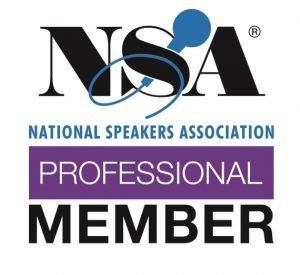As a commander in the U.S. Air Force, I was granted a small amount of power and the perks that go with it. Some of that power came from the title I held and some came from the legal authority which accompanied the position. But, I emphasize that it was a small amount of power. More importantly, the position carried a lot of responsibility.
A combination of my earlier upbringing and the tutelage of some very good leaders earlier in my career had taught me that, though the temptation was always there, I should not take advantage of any power that came with leadership for any sort of self-gratification. Those earlier mentors demonstrated that any power I might have as a leader was entrusted to me for the betterment of the unit and the service. I learned from them that the most important element of leadership was responsibility, not power.
Unfortunately, among my peers and superior officers there were always a few who saw their power as more than a limited, but useful tool to help with that responsibility. For them, power was a drug to which they became addicted. These misguided leaders insisted on every perk they could get and sometimes even used their subordinates for their own personal gain. They exercised power in inappropriate and harmful ways.
The higher in rank, the worse this misuse could become. In his book My American Journey, Colin Powell briefly described his experience in the class that all new general officers attend. He relates this comment by the Army Chief of Staff to those brand new general officers,
“Some of your careers will stall out because you think the star puts you above the rules, and you become little tin gods.”
Fortunately, most power hungry leaders self-destruct along the way. Unfortunately, a few survive to the detriment of the service and the county.
Lest you might think this is a purely military problem, it is not. There is no end to stories of power abuse in politics and business. As one example, and there are many, consider Leona Helmsley. Helmsley accumulated a fortune in the hospitality industry and lived a life that earned her the title “The Queen of Mean.” With the power that accompanies great wealth, she treated those around her as serfs and was famous for saying that only little people paid taxes. Her abuse of power hurt a lot of people and eventually landed her in prison for tax evasion.
Conversely, Abraham Lincoln is a positive example of the use of power. He tempered the considerable power of his office with a very strict moral code which provided the ethical foundation for his time as president. Lincoln understood his position gave him the responsibility to preserve the union and he used his power to that end. He did not take advantage of the office for personal aggrandizement or monetary gain.
In that, he set a sterling example for the rest of us, even those with only a small amount of power.
 Bob Mason is dedicated to leadership development. He works with companies to solve problems by helping supervisors and managers become more effective leaders leading more productive teams. He is a professional speaker and author of Don’t Worry, You Can Do This: What New Supervisors and Managers Need to Know About Leadership; The Art of Not Motivating: How Leaders Can Succeed by Understanding the True Nature of Motivation; Balancing the Generations: A Leader’s Guide to the Complex, Multi-Generational, 21st Century Workplace; and Planning to Excel: Strategic Planning That Works.
Bob Mason is dedicated to leadership development. He works with companies to solve problems by helping supervisors and managers become more effective leaders leading more productive teams. He is a professional speaker and author of Don’t Worry, You Can Do This: What New Supervisors and Managers Need to Know About Leadership; The Art of Not Motivating: How Leaders Can Succeed by Understanding the True Nature of Motivation; Balancing the Generations: A Leader’s Guide to the Complex, Multi-Generational, 21st Century Workplace; and Planning to Excel: Strategic Planning That Works.
A 30-year career in the U.S. Air Force exposed him to great leaders and leadership opportunities such as command of four squadrons, including the Air Force’s largest munitions squadron. He has studied leadership extensively, but more importantly has been there, working with real people, making hard decisions, and experiencing the results.
Contact Bob at Bob@BobMasonSpeaker.com or 505-453-5266




